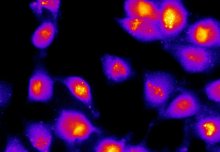

VIRUS SURVEY
Map of hepatitis C strains should help eradication efforts
Researchers have for the first time mapped the global distribution of hepatitis C strains, creating a crucial resource in the fight to eradicate it.



Map of hepatitis C strains should help eradication efforts
Researchers have for the first time mapped the global distribution of hepatitis C strains, creating a crucial resource in the fight to eradicate it.


Waters Corporation acquires iKnife technology
Waters Corporation has secured a deal to acquire the technology behind the surgical "iKnife" being developed at Imperial College London.


Decriminalising sex work would cut HIV infections by a third
The legal and social environment for sex workers must be addressed alongside medical interventions to stop the spread of HIV, researchers say.
 1
1


Video
New trigger for ovulation could make IVF safer
Researchers have successfully used a new and potentially safer method to stimulate ovulation in women undergoing IVF treatment.
 2
2


Researchers respond to criticism of hospital mortality data
Data on hospital mortality rates are essential for identifying and tackling variations in the quality of healthcare, argues a report published today.


Injected vaccine could help eradicate polio
Re-introducing a type of polio vaccine that fell out of favour in the 1960s could hasten eradication of the disease, according to new research.


Southeast England most at risk of rising deaths due to climate change
Warmer summers brought on by climate change will cause more deaths in London and southeast England than the rest of the country, scientists predict.


Statins slow the progression of advanced multiple sclerosis in clinical trial
Statins may provide doctors with an unlikely new weapon with which to slow the progression of multiple sclerosis (MS).


Children with ADHD have higher risk of teenage obesity and physical inactivity
Children with attention deficit hyperactivity disorder (ADHD) are more likely to become obese and sedentary teenagers, according to new research.
 3
3


New kind of scan finds cancer's sleeper cells
Researchers have developed a new imaging technique that lights up cancer's sleeper cells, warning patients and doctors of a potential relapse.